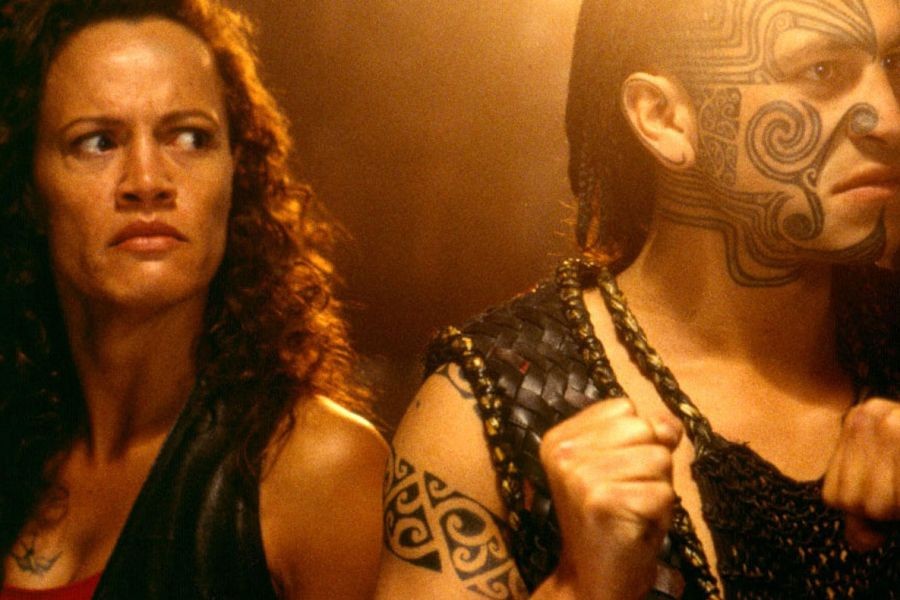In the dynamic landscape of social media, New Zealand brands face both exciting opportunities and unique challenges. Social media platforms have evolved into powerful tools that can help local businesses reach audiences not just across New Zealand but globally. However, with great power comes great responsibility—and the need for strategic planning and execution. In this article, we explore 10 actionable tips for Kiwi brands aiming to excel in the social media arena, backed by data, expert insights, and local context.
1. Understand Your Audience Deeply
The cornerstone of any successful social media strategy is a thorough understanding of your target audience. New Zealand's diverse demographic landscape requires a nuanced approach. According to Stats NZ, the country has experienced significant ethnic diversification in recent years, which means tailoring your content to resonate with different cultural groups is crucial. Utilize tools like Facebook Audience Insights and Google Analytics to gather data on your audience's preferences, behaviors, and demographics.
2. Leverage Local Trends and Conversations
Staying attuned to local conversations and trends can give your brand a competitive edge. Platforms like Twitter and LinkedIn are invaluable for keeping up with trending topics in New Zealand. For instance, the rise of sustainable products has been a hot topic, with more than 60% of Kiwi consumers indicating a preference for eco-friendly brands according to a 2023 report by the Ministry of Business, Innovation and Employment (MBIE). Aligning your content with such trends can boost engagement and brand loyalty.
3. Create Authentic and Relatable Content
Authenticity is a powerful driver of engagement. Kiwi consumers appreciate honesty and transparency, which can be a differentiator in a crowded market. Share behind-the-scenes content, customer testimonials, or stories that highlight your brand's values and mission. This approach not only humanizes your brand but also fosters trust and loyalty among your audience.
4. Invest in Video Content
Video content continues to dominate social media, with platforms like TikTok and Instagram Reels gaining traction among New Zealand's younger demographics. According to a report by NZTech, video content drives 1200% more shares than text and image content combined. New Zealand brands can leverage this trend by creating engaging, short-form videos that capture attention and tell a compelling story.
5. Utilize Influencer Marketing Strategically
Influencer marketing has proven to be a cost-effective strategy for reaching new audiences. However, it's essential to choose influencers whose values align with your brand. A collaboration with a local influencer who has an engaged following in your niche can be more impactful than partnering with a global celebrity. Look for influencers who genuinely believe in your product and can authentically promote it to their audience.
6. Optimize for Mobile Users
With over 70% of New Zealanders accessing social media platforms through mobile devices, according to Stats NZ, ensuring your content is mobile-friendly is imperative. This includes optimizing image sizes, using mobile-responsive design, and ensuring fast loading times. Mobile optimization not only enhances user experience but also improves your search engine rankings.
7. Harness the Power of Social Commerce
Social commerce is on the rise, with platforms like Instagram and Facebook offering in-app shopping features. This presents a tremendous opportunity for New Zealand brands to convert social media engagement into direct sales. A 2023 report by IBISWorld highlighted that social commerce sales in New Zealand are expected to grow by 23% annually. Integrate shoppable posts and leverage user-generated content to drive sales directly from your social media channels.
8. Implement Data-Driven Strategies
Data analytics should be at the heart of your social media strategy. By leveraging tools like Sprout Social and Hootsuite, you can gain valuable insights into what content performs best, optimal posting times, and audience sentiment. Data-driven decision-making enables you to refine your strategy continuously, ensuring you're meeting your audience's needs and maximizing ROI.
9. Engage with Your Community
Social media is not just a broadcasting tool—it's a platform for dialogue. Engaging with your audience by responding to comments, participating in discussions, and acknowledging feedback is vital for building a strong online community. A study by the University of Auckland found that brands that actively engage with their audience on social media report a 33% higher customer retention rate. Make community engagement a priority to foster brand loyalty.
10. Stay Updated with Platform Changes
Social media platforms frequently update their algorithms and features, which can impact the visibility of your content. Keeping abreast of these changes is crucial for maintaining an effective social media strategy. Follow official platform blogs, attend webinars, and join industry forums to stay informed. Adapting to changes swiftly can give your brand a competitive advantage in the ever-evolving digital landscape.
Case Study: Allbirds – The Power of Sustainability Messaging
Problem:Allbirds, a sustainable footwear brand, faced the challenge of distinguishing itself in a competitive market while staying true to its eco-friendly ethos.
Action:The brand leveraged social media platforms to highlight their commitment to sustainability. By sharing compelling stories about their materials and manufacturing processes, Allbirds connected with environmentally conscious consumers. They partnered with local New Zealand influencers who shared similar values to amplify their message.
Result:Allbirds experienced a 50% increase in engagement rates and a 30% growth in sales within a year. Their social media strategy not only boosted brand awareness but also solidified their reputation as a leader in sustainable fashion.
Takeaway:New Zealand brands can learn from Allbirds by aligning their social media strategies with their core values and leveraging influencer partnerships to reach like-minded audiences.
Debunking Common Myths
Myth: Posting more frequently leads to better engagement.
Reality: Quality trumps quantity. A study by Social Media Today found that brands posting high-quality, targeted content less frequently saw a 25% increase in engagement compared to those posting more frequently.
Myth: Only young people are active on social media.
Reality: Social media usage spans all age groups. Stats NZ reports that 67% of New Zealanders aged 50 and above are active on social media platforms, presenting a valuable opportunity for brands targeting older demographics.
Myth: Social media ROI is impossible to measure.
Reality: With the right tools and metrics, ROI is measurable. Platforms like Google Analytics and social media insights can track conversions, engagement rates, and brand sentiment, providing a clear picture of your social media performance.
Biggest Mistakes to Avoid
Mistake: Ignoring negative feedback.
Solution: Address negative feedback promptly and professionally. Use it as an opportunity to improve your product or service. Acknowledging customer concerns can turn a dissatisfied customer into a loyal advocate.
Mistake: Not having a clear content strategy.
Solution: Develop a content calendar that outlines what, when, and where you'll post. This ensures consistency and alignment with your brand goals. Use tools like Trello or Asana for content planning and collaboration.
Mistake: Overlooking analytics.
Solution: Regularly review analytics to understand what's working and what's not. This data-driven approach helps you refine your strategy and make informed decisions. Utilize platforms like Hootsuite to track and analyze your performance metrics.
Future Trends & Predictions
As social media continues to evolve, several trends are poised to shape the future for New Zealand brands:
- Increased Integration of AI and Automation: By 2025, AI-driven tools are expected to automate up to 60% of social media management tasks, according to a Deloitte report. This will allow brands to focus more on creative strategy and customer engagement.
- Rise of Niche Platforms: As platforms like TikTok and Clubhouse gain popularity, brands will need to diversify their social media presence to reach niche audiences effectively.
- Enhanced Data Privacy Regulations: With growing concerns around data privacy, stricter regulations are anticipated. Brands will need to prioritize transparency and data protection to maintain consumer trust.
Conclusion
Success on social media requires more than just posting content; it demands a strategic and nuanced approach. By understanding your audience, leveraging local trends, and staying agile in the face of platform changes, New Zealand brands can harness the full potential of social media. As you embark on this journey, remember that authenticity, data-driven strategies, and community engagement are your greatest allies. Ready to elevate your social media game? Start implementing these tips today and watch your brand thrive in the digital realm.
Related Search Queries
- Social media strategies for New Zealand businesses
- Best social media platforms for Kiwi brands
- Influencer marketing in New Zealand
- Social commerce trends in New Zealand
- How to improve social media engagement
Frequently Asked Questions
How does social media impact businesses in New Zealand?
Social media helps NZ businesses increase brand visibility, engage with customers, and drive sales. Companies using social media strategically report over 25% higher customer retention, according to a recent MBIE report.
What are the biggest misconceptions about social media marketing?
One common myth is that posting more frequently leads to better engagement. However, research shows that quality content, not quantity, is key to higher engagement rates.
What are the best strategies for implementing social media marketing?
Experts recommend starting with a clear audience analysis, followed by creating authentic content and leveraging data analytics to refine strategies. Engaging with your community is also crucial for long-term success.
What upcoming changes in New Zealand could affect social media marketing?
By 2026, policy updates around data privacy could shift the social media landscape. Brands need to prioritize transparency and ethical data practices to stay ahead.
Who benefits the most from social media marketing?
Social media marketing benefits small businesses, startups, and brands with a strong online presence, enabling them to enhance customer engagement and drive revenue growth.

































Robby8979
9 months ago